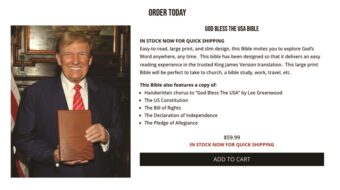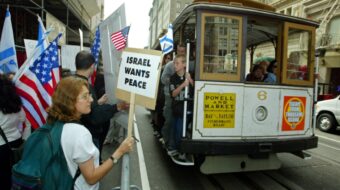
Outrage over the death of an African-American security guard has sparked discussions around the perils of gun ownership. Twenty-six-year-old Jemel Roberson, an African-American security guard, was attempting to defuse an escalation at Manny’s Blue Room Bar during the early hours of November 11, 2018. A man who had been previously kicked out of the establishment returned to the scene and began openly firing in the crowded bar. Roberson was able to subdue the suspect and pin him down while the police were contacted. When authorities arrived at the scene one of the officers mistook Roberson for the shooter and gunned him down.
The Illinois Police Department released a statement on their Facebook page stating that the officer gave the “armed subject” multiple verbal commands to drop the gun before ultimately discharging his weapon. Official police reports also allege that there were no indications that Roberson was security, but multiple eyewitnesses at the scene told authorities that Roberson was not given a chance to respond because they immediately opened fire.
In the aftermath of the events, a federal lawsuit was filed by Roberson’s mother. “The shooting death of Jemel Roberson was unprovoked,” the suit states. “The shooting death of Jemel Roberson was unjustified. The shooting death of Jemel Roberson was excessive and unreasonable.”
A vigil for the deceased was held at Roberson’s former high school in Chicago. Members of the community came to support and stand in solidarity with his family. Roberson’s friends spoke as well. “He was one of the first friends I made and I will always remember how kind and welcome he made you feel in his presence,” said Citali Arroyo, the vigil organizer. Despite near-freezing temperatures, several people showed up to pay respects and write messages of support in chalk in front of Roberson’s former high school.
Roberson’s passing highlights the ongoing issues between tthe police and African American communities, however, it also places particular emphasis on the special dangers faced by Black gun owners. Roberson was a father, an active member of his church and beloved by his co-workers. He was the cookie-cutter prototype for the “good guy with a gun” theory that is frequently pushed by the pro-gun lobbyist. So why was Roberson given no opportunity to bask in the limelight of his heroic actions?
For years politicians have debated the merits of stricter gun-control policies, and recently young activists have called upon their representatives to ban sales of automatic assault weapons. One of the arguments pushed by the National Rifle Association is that there needs to be more universal gun ownership in order for people to defend themselves from mass shooters. Jemel Roberson, however, is just one example of why this concept falls apart: The “good guy with a gun” trope runs into many problems including racist stereotyping by police and others.
It is estimated that about a quarter of black (24%) individuals across the country own guns, compared to the 36% of whites who have reported gun ownership. This gap is rooted in a long and problematic history of racist gun control policies partly upheld by the NRA. The topic of race, however, is often absent in the discourse surrounding gun control, although it remains critical to the discussion.
The hypothetical notion of a “good guy with a gun” is often built around ideas of heroism where “good guy” is a euphemism for “white male.” The death of people like Philando Castile, a registered gun owner, only further affirms the fact that criminalization of Blacks is often a default assumption for police. Contrast that to the legal treatment of people like George Zimmerman, who was able to exploit “stand your ground” laws during a 2012 altercation that resulted in the death of 17-year-old Trayvon Martin.
Despite research concluding that allowing citizens to carry handguns only seems to “increase violent crime 13 to 15 percent by the 10th year,” the pro-gun advocates continue to push the “good guy” narrative. The myth cannot be sustained in the face of such evident implicit bias. Unless racial inequality is acknowledged, young Black men like Jemel Roberson will continue to pay the price.












Comments